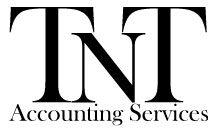As we step into 2025, it’s essential to stay informed about the latest updates and changes in the Canadian tax system. Whether you’re a seasoned taxpayer or filing for the first time, understanding the nuances of personal taxes can help you maximize your returns and avoid any pitfalls. Here’s a comprehensive guide to help you navigate the 2025 tax season in Canada.
Key Dates and Deadlines
Mark your calendars! The deadline for filing your personal income tax return for the 2025 tax year is April 30, 2026. If you’re self-employed, you have until June 15, 2026, to file your return, but any balance owing must still be paid by April 30, 2026. It’s crucial to file on time to avoid late-filing penalties and interest charges.
What’s New for 2025?
The Canadian tax system sees periodic updates, and 2025 is no exception. Here are some of the key changes to be aware of:
- Tax Brackets and Rates: The federal tax brackets have been adjusted for inflation. Ensure you check the latest rates to understand how they apply to your income.
- Credits and Deductions: There are new and updated credits and deductions available this year. Notably, the Climate Action Incentive (CAI) has been expanded, and there are increased limits for the Canada Workers Benefit (CWB).
Maximizing Your Deductions
To make the most of your tax return, consider the following deductions and credits:
- RRSP Contributions: Contributions to your Registered Retirement Savings Plan (RRSP) can reduce your taxable income. The deadline for RRSP contributions for the 2025 tax year is March 1, 2026.
- Home Office Expenses: If you work from home, you may be eligible to claim home office expenses. Ensure you keep detailed records of your expenses throughout the year.
- Medical Expenses: Keep track of your medical expenses, as you may be able to claim a tax credit for eligible expenses that exceed a certain percentage of your net income.
Filing Your Return
Filing your tax return can be done through various methods:
- Online: The Canada Revenue Agency (CRA) offers an online filing service called NETFILE, which is fast, secure, and convenient.
- Paper: You can still file a paper return, but keep in mind that processing times may be longer.
- Tax Software: Consider using certified tax software to help you prepare and file your return accurately.
Seeking Professional Help
If your tax situation is complex, it may be beneficial to seek the assistance of a tax professional. They can provide personalized advice and ensure that you’re taking advantage of all available credits and deductions.
Conclusion
Staying informed and organized is key to a smooth tax season. By understanding the latest changes and knowing what deductions and credits are available, you can optimize your tax return and avoid any surprises. Happy filing!
Feel free to reach out if you have any specific questions or need further assistance with your 2025 personal taxes in Canada! 😊

